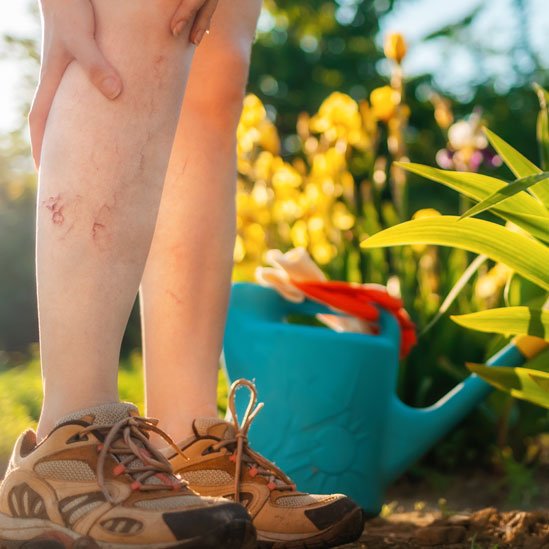How Does Weather Affect Our Veins?
Have you ever wondered how the weather may affect your vein health or vein symptoms? With the changing seasons, you may notice more varicose veins with warmer weather and fewer vein symptoms with cooler weather.
How Does Cooler Weather Impact Veins?
Cooler temperatures can offer temporary symptomatic relief to veins. When your veins are smaller the valves function better, helping to circulate the blood properly. This will cause you to have fewer leg cramps and you will have less swelling. Your lifestyle choices during the cooler months have a greater, longer-lasting impact on your veins.
Even with cooler temperatures, staying on top of vein health in the winter is still important. Here are some ways to help your veins during the cooler months:
Exercise daily. Going on short walks frequently will help keep your blood flowing. Staying seated for too long can disrupt the normal flow of blood, causing it to pool.
Eat healthy. Enjoy healthier food options to help avoid extra weight gain. With holidays and colder days, we tend to overindulge in food and eat richer, fattier comfort foods causing extra weight gain.
Stretch your body. Boost your circulation by stretching, especially if you stand or sit for long periods at a time. Take stretch breaks to get your blood circulating and prevent blood pooling.
How Does Warmer Weather Impact Veins?
Generally, when things heat up they expand, the same goes for your veins. Warmer weather can irritate the symptoms of vein disease. If you feel like your varicose veins are worse in the summer you're correct.
When your body heats up in the summer temperatures your veins dilate to allow more blood flow.
The body increases expand veins to help blood flow closer to the skin's surface, which then produces sweat to cool the blood in order to cool our bodies. If your veins are already having issues this could create more issues. Veins have valves that circulate blood through our bodies. When they become damaged, that is when blood can pool.
Here are some ways to help relieve vein pain during the warmer months of the year:
Stay hydrated. When you're dehydrated your legs swell and muscles cramp
Elevate your legs. To help ease swelling and leg fatigue elevate your legs above your heart for 15 minutes three times a day.
Try to stay cool. Seek shade to help decrease stress on veins and avoid the hottest hours of the day which are 11 A.M. to 3 P.M.
When To See a Vein Doctor Near You
It's important to discuss your symptoms with your doctor because it may signal an underlying condition. A disease that leads to poor circulation can worsen over time and pose a life-threatening complication. Therefore, it's important to work with a vein doctor to diagnose and determine the cause of your poor circulation symptoms and determine a treatment plan.
Interested in a comprehensive lifestyle to improve blood circulation for legs? Schedule a free screening with our vein specialists. We have 10 convenient vein clinics across South Dakota, Iowa and Minnesota where you can schedule a free vein screening.


